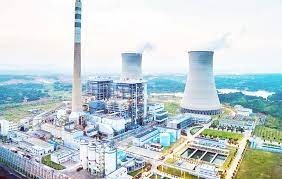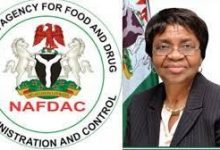The proposed sale of power plants

Given the obvious failure of the privatization exercise of power distribution aspects of the sector, from which Nigerians are still suffering, the controversy surrounding the proposed sale by the Federal Government of the five National Integrated Power Projects (NIPP) assets should not be surprising. A natural follow-up question is whether or not the most recent plan will meet the same fate as its predecessor. How strictly will the government adhere to due diligence? The question is whether or not corrupt influence will undermine the exercise. Do you think the would-be purchasers are qualified, or are they just trying to get their hands on a bargain? Will the public interest be safeguarded adequately? While further issues arise, the government must nonetheless reassure its constituents that the proposed sale will not amount to a theft of public property.
Until these questions are answered, the debate will rage on, and the idea will look misguided. People who want to sell or buy Nigeria’s prized national assets may not think the country has a bright future. If proper measures are not taken to protect the interests of everyday Nigerians, selling the power plants would be the same as selling the country, which is unacceptable. For this reason, it is important to recognize the fierce opposition to the notion from consumer rights groups. Therefore, we must proceed with prudence.
Nigeria Consumer Protection Network (NCPN) President Kola Olubiyo spoke out against the plan, saying that the Bureau of Public Enterprises’ (BPE) intention to sell the power plants threatens national security. During the final days of President Muhammadu Buhari’s government, he said in a statement released in Abuja that plans to sell off Niger Delta Power Holding Company (NDPHC) plants indicate a theft of national assets. This action raises red flags.
The Bureau of Public Enterprises, which works on behalf of the federal government, is reportedly conducting due diligence on the 16 pre-qualified investors who have been shortlisted to purchase the five power plants.
Calabar (Cross River State), Ihorbor (Edo State), Olorunsogbo (Gun State), Omotosho (Ondo State), and Geregu (Kogi State) all have power plants that are slated for sale notwithstanding a mandate by the House of Representatives to the BPE to suspend the sale of these facilities. About three months ago, the chairman of the House Committee on Power, APC’s Magaji Aliyu of Jigawa, made a motion of critical public interest, declaring that the power assets belong to all three levels of government, with the federal government holding 47% and the states and local governments 53%. Certainly this is a major issue that needs to be discussed. He went on to say that the federal government was adamant about selling the assets to pay the budget deficit without the approval of the other levels of government and any interested parties.
BPE Director-General Alex Okoh has listed 16 potential bidders, including Mota-Engil Nig, Amperion Power, Sifax Energy, Pacific Energy Company Ltd, and Globeleq Africa Limited. Some of the others are: Geoplex Drillteq Limited, Asfalizo Acquisition Ltd, Launderhill PJB, Lauderhill Tata, Unicorn Power Genco Ltd, Connaught Energy Services Ltd, ENL Consortium Ltd, Ardova Plc, Central Electric and Utilities Ltd, North South Power Consortium, and Quantum Megawatt Consortium. The BPE has stated that the opening of bids is the next step, but has also mentioned that the government is now conducting due diligence on the 16 pre-qualified enterprises.
Energy users, speaking under the NCPN’s auspices, have called the BPE’s plans to sell the power plants a “miscalculated action that poses national security concerns,” calling instead for an investigation into the subject to be launched by the Special House of Representatives Joint Committees.
The Federal Government must exercise caution that it repeat the mistakes of previous attempts to privatize the nation’s electrical grid. Poor performance from the country’s Gencos and DISCos shows that the country has been down this road before with terrible effects (Discos). There is currently no assurance that the companies considered “pre-qualified” to acquire NIPP assets actually are. If the assets must be sold, the government must provide a mechanism to assuage public concerns about the legitimacy of the prospective purchasers. The current situation of the electrical sector is indicative of a larger problem: Nigerians’ lack of faith in the government to do the right thing. The country cannot afford to make the same error with the Gencos and Discos again at this time.
The energy industry is plagued with numerous issues. On the one hand, energy is produced but not transmitted to users. Nigerians have been cheated in terms of their access to reliable electricity. Still, the vast majority of users are not metered and, instead, are unfairly billed using estimations. Years after the Jonathan administration privatized 13 power facilities in 2013, the running corporations are still ignoring government directives.
If the power plants have to be sold, the government must ensure that they are sold in accordance with the law and with adequate due diligence. The BPE is essential to the process as a whole. What assurances can be made that this course of action will be successful? Also, what exactly is the problem with privatization in Nigeria? Of course, the answer is not far-fetched, and it has to do with systemic corruption, the inability of government agencies to pay power bills, and the ensuing large debts owed to the Disco. Have government agencies reached a point where they can begin making payments immediately?
The power sector did poorly under public management, but it has not performed much better under private management. Given the apparent ease with which other climates handle their power sector, this begs for a closer analysis and self-evaluation by government. The power sector could benefit from a public-private partnership that would provide the necessary expertise, capital, and enabling environment; however, the government must be honest and transparent throughout the partnership’s operations.
Join our 100,000+ members and never miss our members’ exclusive Delsu Breaking News.
Gain Access to Our Private News Room
Popular Stories right now
- Buhari budgets N248bn for Lagos-Ibadan Expressway, roads
- Nigeria’s hunger level ‘serious,’ ranks 103 out of 121 countries
- Declare flooding national emergency, Diri, others tell FG




